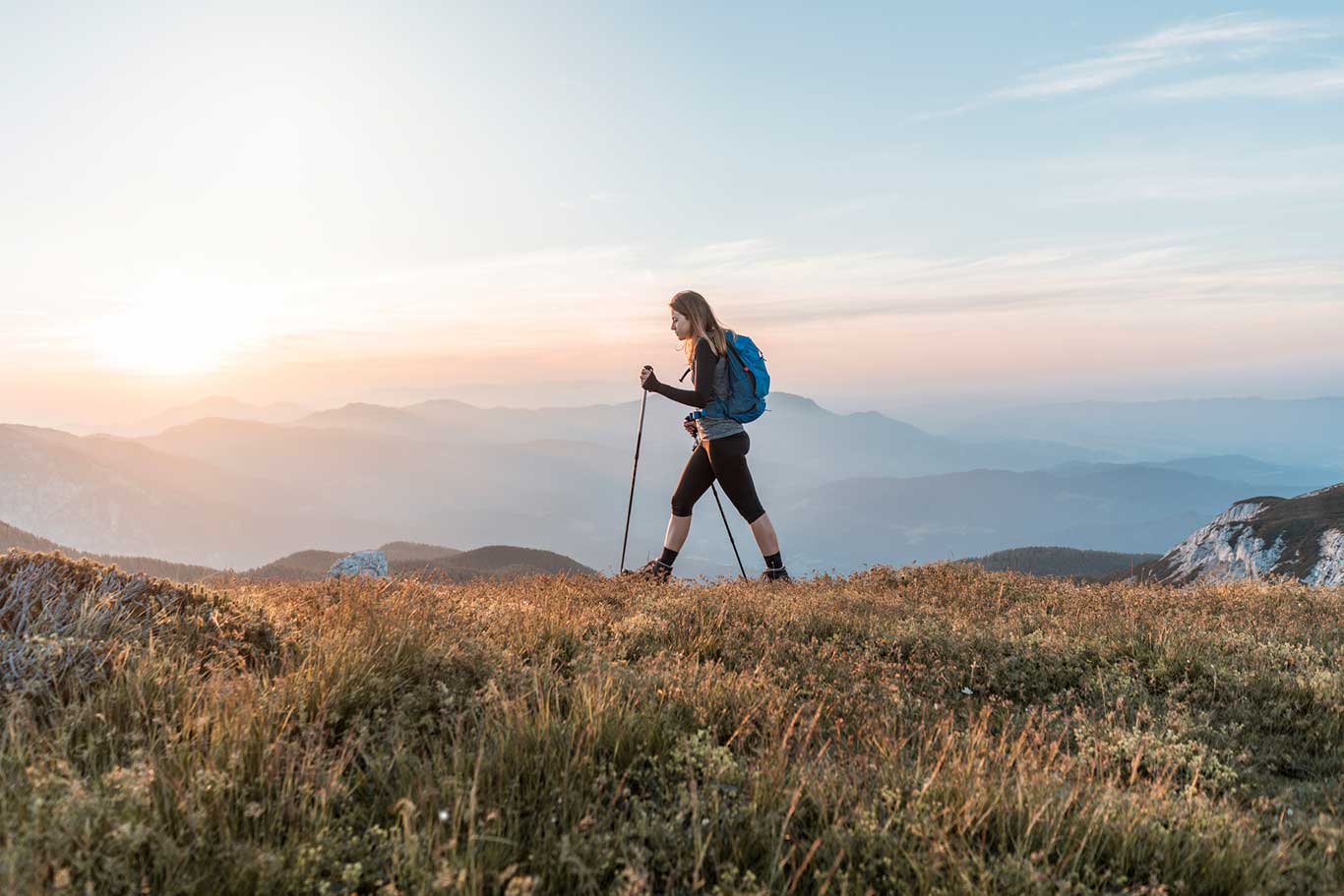In addition to being a fantastic way to experience nature and discover new locations, hiking has many health advantages, especially for the heart. Hiking regularly can greatly enhance heart health, strengthening the cardiovascular system and lowering the risk of heart disease. Hiking has the following heart-healthy benefits. Explore more about hiking benefits for heart health:
1. Heart-Healthy Benefits of Hiking:
a) Aerobic Exercise:
Hiking is an aerobic activity that raises your heart rate and makes your heart race. Exercises like this fortify the heart muscle, increase blood flow, and optimize the body’s ability to deliver oxygen to all parts of the body.
b) Lower Blood Pressure:
Regular hiking can assist in lowering blood pressure, which is important for heart health. It lowers the risk of hypertension, which is a condition linked to cardiovascular problems such as heart disease and stroke.
c) Weight Management:
Hiking is a weight-management exercise that burns calories. Heart health depends on maintaining a healthy weight because being overweight puts stress on the heart and raises the risk of heart disease.
d) Improved Cholesterol Levels:
By raising HDL (good) cholesterol and decreasing LDL (bad) cholesterol, hiking can help lower cholesterol levels. This may decrease the risk of heart disease by preventing plaque from accumulating in your arteries.
e) Enhanced Circulation:
Frequent hiking enhances circulation, a vital component of heart health. It guarantees the effective delivery of nutrients and oxygen to all of the body’s organs and tissues, including the heart.
f) Stress Reduction:
Hiking in the outdoors reduces stress and enhances mental health. Since chronic stress is linked to an increased risk of heart disease, heart health can benefit from lower levels of stress.
g) Stronger Muscles and Bones:
Hiking is a weight-bearing activity that fortifies the bones and muscles. Cardiovascular health can be enhanced and the heart can be supported by strong muscles. Walking is vital because it has so many advantages for you.
h) Better Mental Health:
Hiking frequently can enhance your mental and emotional well-being, which may have a knock-on effect on your heart. Positive mental health is associated with a lower risk of heart disease. Learn more about mental and physical wellness through hiking.
2. Some Tips for Hiking:
Hiking is a rewarding and fun outdoor activity, but it’s crucial to plan and keep yourself safe when hiking. Here are a few tips for hiking:
a) Plan your Hike:
You must research the trail you intend to hike, including its length, elevation gain, and terrain. To ensure that you hike in favorable weather, check the trail conditions and weather forecast before you leave.
b) Start Early:
To avoid the heat and to ensure that you have enough time to finish your walk before dusk, start early in the day. By hiking in the morning, you can also maintain your freshness throughout the day.
c) Wear the Right Gear:
Wear supportive hiking boots or shoes with good traction, and comfy, moisture-wicking clothes. Wear multiple layers of clothing so you can adapt to the changing weather. Additionally, wearing cozy clothes and shoes makes hiking feel comfortable.
d) Pack Essentials:
Bring lots of water, food, a first aid kit, a headlamp or torch, sun protection (sunscreen and sunglasses), a map, a compass, and a whistle for emergencies. These are simple but necessary items to have on you when hiking.
e) Watch your Step:
Pay attention to your footing, particularly on slick or uneven surfaces. If you need extra stability, use trekking poles. Being mindful of where you plant your feet can help you avoid tripping, falling, and slipping. Additionally, it reduces your chance of injury by assisting you in navigating obstacles like branches, roots, and rocks. Being aware of where you are walking can also help you stay on the trail and prevent environmental damage.
f) Be Prepared for Emergencies:
Hiking requires having emergency plans in place. Even though hiking is usually a safe activity, unforeseen circumstances like getting lost, getting hurt, or suddenly having bad weather can happen. How you handle these situations can differ greatly depending on your level of preparation. For more safety insights, check out hiking safety and wellness tips.
3. Why Hiking is Essential:
Hiking is important for many reasons, including its effects on the environment and personal development, as well as its advantages for the body, mind, and social life. The following are some primary reasons:
a) Personal Growth:
Hiking can test your physical and mental limits and promote resilience, self-assurance, and self-worth. Additionally, it may present chances for introspection and personal development.
b) Exploration and Adventure:
Hiking can lead you to isolated wilderness areas that are frequently inaccessible by road, as well as beautiful vistas, hidden waterfalls, and immaculate lakes. It lets you explore a variety of environments, such as forests, mountains, deserts, and coastlines, each with its special beauty and struggles.
c) Environmental Awareness:
Hiking can be an effective way to increase environmental awareness because it allows people to interact directly with nature, raises awareness of environmental issues, and instills a sense of duty for conservation.
d) Learning about Local Ecosystems:
Hiking frequently involves learning about the local flora, wildlife, and ecosystems. Understanding the interconnections between the environment and the effects of human activity on natural habitats can be enhanced by this information. It increases your plant knowledge.
e) Direct Experience of Nature:
Hiking gives people the chance to interact and experience nature up close. An increased appreciation for the environment and a desire to protect it can be fostered by this firsthand experience. You can also alter your path to encounter fresh and distinctive experiences every day, as discovering new things brings you jo
Conclusion:
Hiking is a great way to improve your health, and it also benefits you in several ways, as we have discussed in this article. Make sure to include hiking in your routine to have these healthy benefits. Learn more about heart-healthy lifestyle and hiking wellness to stay inspired and active.
